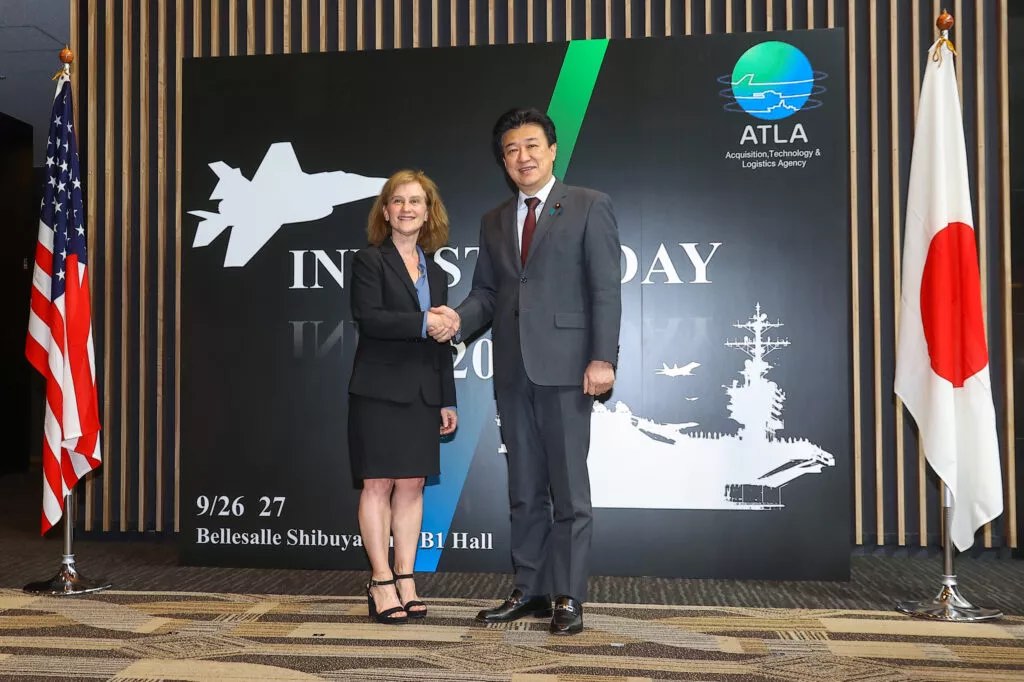TOKYO, Dec 27 (East Asia Forum) - Japan is revolutionising its defence innovation by creating a dual-use startup ecosystem that integrates civilian technologies into defence research.
To survive in the global technological race, Japan must integrate defence and civilian innovation ecosystems that are made up of various stakeholders. The concept of a ‘dual-use startup ecosystem’ was jointly announced by Japan’s Ministry of Defense and Ministry of Economy, Trade and Industry in September 2024. It aims to integrate Japanese startups into research and development to address technological needs for defence equipment.
Preceding the announcement, the government informally identified around 200 startups in July 2023 and outlined plans to introduce defence-related equipment and financial support to these companies, addressing their concerns about entering the market. The list includes companies specialising in advanced technologies such as drones, cyber defence, satellite communications and electromagnetic wave-related innovations.
The Ministry of Defense’s Acquisition, Technology and Logistics Agency is spearheading this initiative through the Defense Innovation Science and Technology Institute, established in October 2024. The goal is to incorporate civilian technologies into defence equipment efficiently, aligning with the recent global trends in defence acquisition policy, which increasingly integrates private-sector technologies and ideas into the defence innovation ecosystem. Startups’ unique technologies and innovations are considered critical resources for the defence sector. These defence initiatives are inspired by models such as the US Defense Advanced Research Projects Agency and the Defense Innovation Unit, designed to swiftly adopt advanced private-sector technologies.
This approach is not entirely new in Japan. Efforts to strengthen cooperation with the private sector and utilise dual-use technologies in defence research and development can be traced back to the 2013 National Security Strategy and the 2014 Strategy on Defense Production and Technological Bases. These policies clearly stated that the promotion of public–private partnerships was a critical aspect of policy change, which was affected by complex factors, including the globalisation of supply chains, the deterioration of Japan’s security environment, concerns about the shrinking of the Japanese defence industry’s base and the pursuit of technological cooperation with allies and friends.
But the gap between policy formulation and implementation has hindered the development of dual-use technology in Japan. One significant obstacle is the low profitability of the defence industry, which has led to a sustained exodus of private companies from the sector. Japanese defence industry reform must enhance incentives for startups to engage in the innovation ecosystem. While increased defence spending offers short-term advantages — evidenced by traditional defence firms expanding their facilities — the ability of small- and medium-sized companies, including startups, to benefit remains uncertain.
Another crucial hurdle is the deep-rooted cautiousness of the private sector in Japan toward defence-related research and development, rooted in anti-militarist norms established during the early Cold War period. A significant part of the Japanese industrial and academic sectors has often shown normative resistance to cooperation with the Ministry of Defense, viewing military involvement as a reputational risk in the civilian field that accounts for the majority of their activities.
The academic sector opposed the Ministry of Defense’s research and development funding established in 2015. The Science Council of Japan criticised it as a move that would lead to excessive restrictions on free and open scientific research, and many universities decided not to apply for the research grant. For these reasons, the Japanese defence industry’s reforms, including private-sector-led defence projects, have not produced immediate and sufficient results, and some startups are also likely to face similar hurdles in entering the market.
Despite these challenges, Japan’s new approach to the dual-use startup ecosystem reflects a shifting political and social context. Since the 2010s, Japan’s national security policy has evolved to address a harsher security environment and fiscal constraints. Public opinion has gradually shifted, becoming less negative toward pragmatic national security policy, though some resistance persists among companies and universities. Startups led by younger entrepreneurs unbound by traditional business models are likely to play a decisive role in the success of this policy.
Another political trend that can accelerate the rearrangement of the Japanese defence innovation ecosystem is the strengthening of economic security policy. Since the enactment of the 2022 Economic Security Promotion Act, many fields of policy in Japan have entered a period of ‘economic securitisation’. An essential part of this economic security policy is acquiring critical and emerging technology.
The act also supports initiatives like the ‘Key and Advanced Technology R&D through Cross Community Collaboration Program’. In doing so, the government has expanded research and development budgets, with applications spanning both civilian and military domains — officially referred to as ‘multi-use’ technologies. This means that defence-related research and development is now framed not only in the context of military security but also economic security, which is likely to be more acceptable in the Japanese political culture.
If this trend of ‘economic securitisation’ continues, normative barriers to defence-related research and development may be reduced for companies and universities. This is an opportunity for the Japanese government to realise a defence innovation ecosystem. But it is also a time of tough choices for the private sector to decide whether and how to get involved in the defence business based on its interests and normative stance.
Kousuke Saitou is Professor at the Faculty of Global Studies, Sophia University.
















